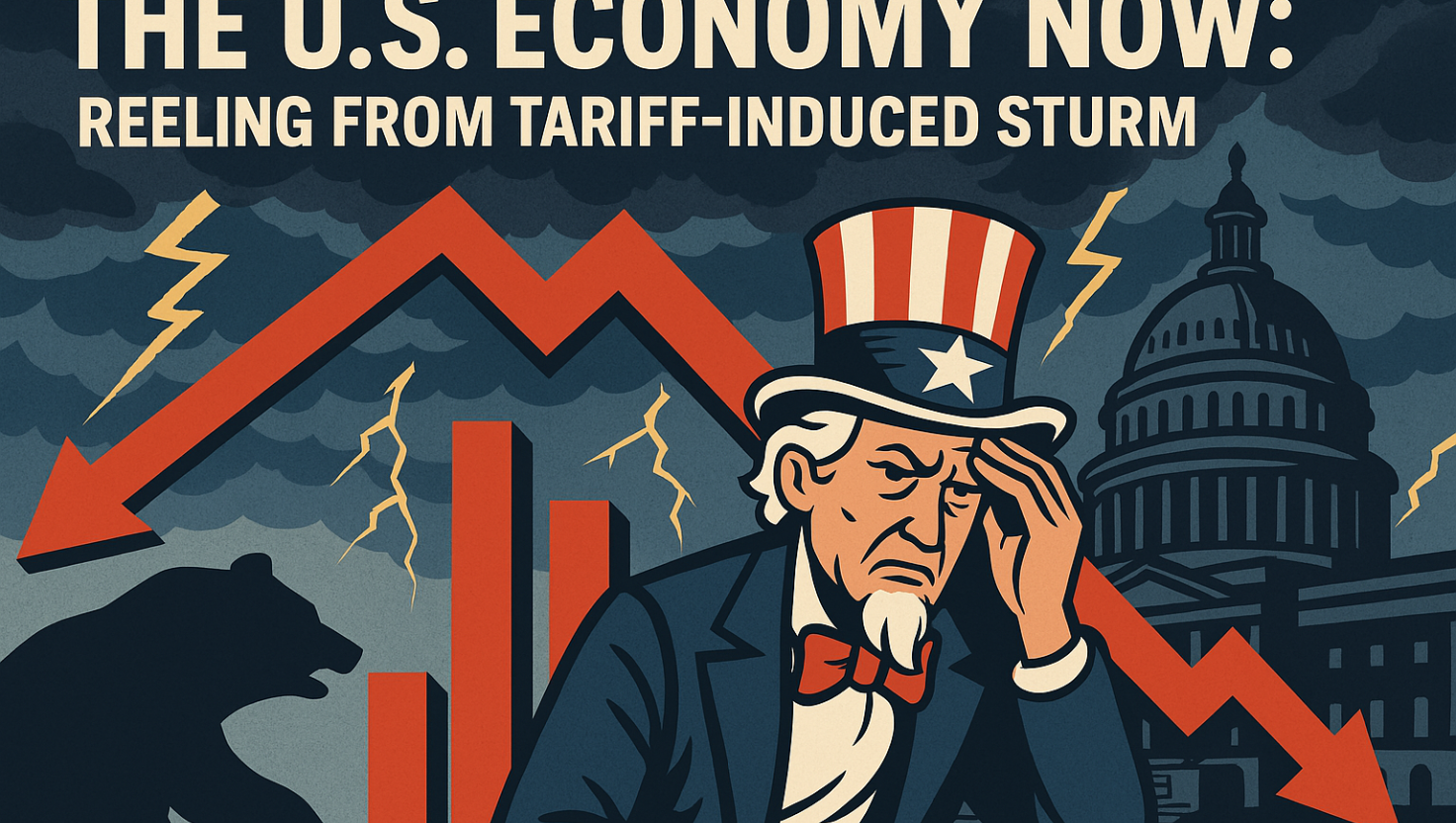The U.S. Economy Now: Reeling from Tariff-Induced Sturm
The U.S. economy now is grappling with a storm — and this time it's one of its own making. The offender? A wave of aggressive tariffs intended to shield American industries but now rattling the very fabric of the economy. From Wall Street to Main Street, the echoes are being heard loud and clear.
📉 Market Volatility and Economic Indicators
The stock market is getting hot. The S&P 500 has fallen into bear territory as investor confidence decreases due to concerns over a sustained trade war and economic slowdown.
💡 Fun Fact: According to a study by the Yale Budget Lab, recent tariffs may increase inflation by 2.3%, which would cost the typical American household $3,800 in lost purchasing power in 2025.
💼 Corporate Concerns and Recession Risks
Alarm is being raised by top CEOs. JPMorgan's Jamie Dimon cautioned that these tariffs have the potential to slow down economic growth and spark inflation. Their recession prediction? A disturbing 60% possibility in 2025.
BlackRock CEO Larry Fink went even further — asserting that the U.S. could already be in a recession. And 69% of senior U.S. executives agree, as per CNBC.
🛒 Tariffs = Hidden Taxes on Consumers
Who's actually paying for these tariffs? You and me.
From food to gizmos, Americans are feeling the sting in their pockets. Businesses with increased input costs are charging them on — and that's fueling inflation at a time when consumers are already cutting back.
🌍 International Relations and Global Trade
The world stage is changing — and not for America's benefit.
China has imposed retaliatory tariffs on American goods and looked to Brazil for soybeans.
Europe is making WTO complaints and creating new trade blocs.
India is increasing exports and applying counter-tariffs to American products.
🌐 The world isn't waiting for America to lead anymore — it's learning to work around it.
🚫 The Real Impact: America on the Sidelines
Most of the world's biggest trade agreements now leave the U.S. out altogether:
RCEP: Globe's largest trading bloc — with no U.S. presence.
CPTPP: A U.S. initiative, once, now a goer in its absence.
BRICS+: Intensifying anti-dollar forces across the world.
📉 Foreign direct investment in the U.S. decreased by 21% in 2024, UNCTAD reports.
⚠️ Tariffs Backfire: Conclusion
Tariffs were meant to promote American influence. Instead, they've put it in solitary confinement.
Wall Street is anxious.
CEOs are bracing themselves for a recession.
Consumers are suffering the consequences.
Allies are slowly drifting apart.
❌ It's not a "tariff strategy." It's a tariff trap — and unless wiser policies are pursued, the U.S. risks losing its economic leadership, one poor choice at a time.

